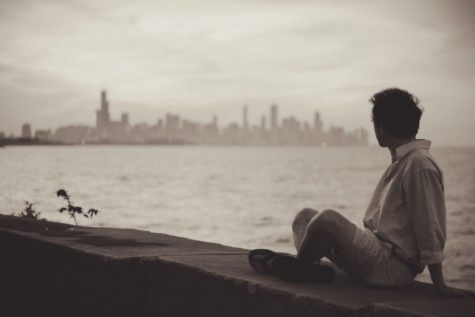PITTSBURGH — Young adults who use social media for at least two hours a day double their risk of feeling socially isolated, a new study finds.
The findings led lead author Brian A. Primack, M.D., Ph.D., director of Pitt’s Center for Research on Media, Technology and Health, to sound the alarm on the effect of too much social media in young people.
“This is an important issue to study because mental health problems and social isolation are at epidemic levels among young adults,” he says in a university news release.

Primack and his team examined questionnaires in 2014 from 1,787 Americans between the ages of 19 and 32. The surveys sought to see how often the participants logged onto the 11 most popular social networks and how much time a typical session would last.
The top social media platforms at the time were Facebook, YouTube, Twitter, Google Plus, Instagram, Snapchat, Reddit, Tumblr, Pinterest, Vine and LinkedIn.
The data was then plugged into the Patient-Reported Outcomes Measurement Information System (PROMIS), a tool that evaluates social and mental health in people of all ages, to measure the participants’ perceived social isolation.
Those who spent more than two hours a day on social media were twice as likely to show signs of social isolation than participants who spent no more than 30 minutes on the sites. Similarly, young adults who visited the sites at least 58 times in a week were triple the odds of feeling socially isolated than those who only logged onto social media nine times in a week. This held true even when demographic and other control factors were taken into consideration.
“We are inherently social creatures, but modern life tends to compartmentalize us instead of bringing us together,” says Primack, who is also the assistant vice chancellor for health and society in Pitt’s Schools of the Health Sciences. “While it may seem that social media presents opportunities to fill that social void, I think this study suggests that it may not be the solution people were hoping for.”
Primack and his team considered that social media use could potentially consume a person so much that there’s little time for them to enjoy personal, real-world socializing. But the amount of time spent seeing the lives of others could also spark feelings of exclusion or jealousy. Perhaps a user might see a celebration he or she wasn’t invited to; or simply viewing a person’s photos of a family vacation or other personal event could cause someone to believe their friend enjoys a happier, more fulfilled life than them.
“I don’t doubt that some people using certain platforms in specific ways may find comfort and social connectedness via social media relationships. However, the results of this study simply remind us that, on the whole, use of social media tends to be associated with increased social isolation and not decreased social isolation,” he says.
Elizabeth Miller, M.D., Ph.D., professor of pediatrics at Pitt and chief of the Division of Adolescent and Young Adult Medicine at Children’s Hospital of Pittsburgh of UPMC, believes it’s of course possible that the feelings of isolation may have preceded the social media use, and was in fact why the participants would then turn to the sites in the first place.
“Or it could be that their increased use of social media somehow led to feeling isolated from the real world. It also could be a combination of both,” she says. “But even if the social isolation came first, it did not seem to be alleviated by spending time online, even in purportedly social situations.”
Because Primack believes feelings of social isolation are at epidemic levels, both he and Miller suggest that doctors routinely survey patients on their social media use and keep an eye out for symptoms.
The study was published earlier this month in the American Journal of Preventive Medicine.

I think there are many negative psychological side effects associated with social media. Many have not been detected yet. The study’s are trickling out that show there are negative side effects. I noticed that YouTubers that have a channel tend to quit their channels because of various mental duress.
I noticed that the home nesting channels get fewer views than the emotional vlogger channels – that may not be disturbing because the audience might just be worldwide nerds who are otherwise studying for the SATs or otherwise living productive lives.
I still don’t understand how to use a cell phone and I’m looking forward to the issues with the overtaxation and the lawsuit regardless of losing the building since all this trying to play ball with the creeps in NYC government is so futile. They are really shameless and playing nice doesn’t do anything.
At least my mother can die with her delusions and her useless Final C of O accomplishment.
Here’s the dirty little secret: cell phones work just like non-cell phones – you press the buttons for the number you want to call and place the phone up to your ear. Yes, really.
We don’t have landlines anymore not even for the copper line in the 2 bedroom apartment – it’s all about internet and flipphones and even a smartphone which is just a backup gmail checker.
its easy to believe the study results….the internet has had profoundly negative effects on almost every aspect of social and civil existance. Rage fear anger and aggression all seem to be unleashed and magnified by the internet. Rudeness and exploitation of the most vulgar varieties are commonplace on the net and would result in arrests and jail time if conducted in real time face to face. The net allows and encourages flash mobs, flash riots, flash gangsterism and flash smash and grab felonies in quantities and locations previously scarcely imagined. Frauds, hoaxes, disinformation, fake news, and extortionist videos are 13 to the dozen on a daily basis on the internet. In essence you can trust nothing that you see or hear on the internet, with a few occasional exceptions. The more time spent on the internet the more perverse the effects on the psyche. The normal social controls and social mores that govern reasonable and polite human interactions are all switched off or absent in the digital domain. The electron is impersonal, pagan and without conscience..
And rock and roll makes people killers. Perhaps the net is simply a clear window in to the soul of man, the darkness that never bothered your sensitivity when it was hidden. Every thing has its purpose and it’s chosen time. There is a script, everyone has a role, and it shall unfold exactly as planned.
Soon, every one will know of every thing.
Some of you already think you know everything. You don’t. Not even close.
If you say things on the internet you wouldn’t say in real life to strangers, you are using it properly. The internet is for shitposting.
then the whole planet or at least NYC’s CIty Council should be bananas – I’ve only been on a twitter a couple of weeks and already I can see the incredible self promotion and logrolling going on with them – they’re awful and I dont see Spy Magazine resurrecting to take them on – so what does that really say about THAT voice?
For me, I just think People suck….I don’t need twitter to feel that way…it happend in my 20’s, before the Internet, when I realized no one gives a 5hit and if they get a chance to screw me over they usually do…
Yes. Study is flawed in assuming all social contact is good for health.
You’re exactly right, and I agree 100%. Most people go around thinking “what’s in it for me, and if there’s nothing, screw you”. I’d rather spend time with my dog than most people I’ve ever met.
2 hours of that nonsense would guarantee me a migraine headache.
Being from Massachusetts, I find that choosing social isolation has its own rewards. These chumps are going to enjoy our devolution as third world standards become the normative. There are certain things that corruption and violence can advance much faster than would otherwise be possible under the rule of law. Political assassination and roving bands of vigilantes makes a society quite vibrant and dynaimc when properly employed.
Always embrace the suck.
Never met a shrink who didn’t NEED one badly.
The people that obsess over “social media” are idiots. Get a life, fools
Sounds like they are laying the ground work for a “War on Social Media”, which will run in tandem with the “War on Drugs”; for the sole purpose of oppressing the people.
Sighs… another useless “study.”
Mental health as a weapon against the people is communist in origin..
Dominate the psychiatric profession and use mental health laws as a means of gaining coercive control over those who oppose Communist goals.
I don’t want people ” all up in my business “.
Look, I’m just as skeptical of folks being plugged into the fools “Borg Hive” as anyone. But as far as I’m concerned, it’s just more Luddite reactionary drivel. In 1955 all people did was watch television every moment they weren’t working. A half century later we’re so over TV. Sooner or later, the texting chimps will move on to the next culture toy, whatever it is. Human nature simply has to take it’s bumbling course.
We needed a study to validate that face time at the computer reduces person to person face time? We’ve raised an entire generation of snowflakes – this is why they cannot face life. Lazy parents use TV and computers to “occupy” their children during formative development years. Now that’s child abuse!